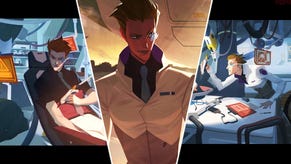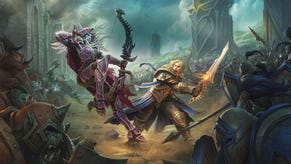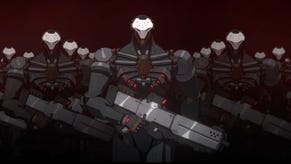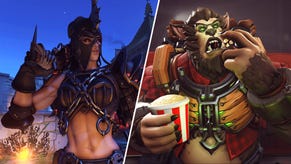Overwatch is a brilliant class-based shooter, but who is it for?
You can't deny Overwatch's exciting gameplay and exceptional polish, but is there a chance for it to thrive in the current FPS landscape?
"Overwatch's biggest strength comes from taking the risk of breaking away from the norm as often as possible, and to deliver something that you simply won’t find anywhere else."
The first person shooter genre has been slowly getting stale. We've seen the big series try to survive by mixing in RPG elements, increasing the pace of combat, and augmenting basic actions like walking and jumping with high-powered mods.
Yet amidst this seeming renaissance, from Titanfall to Destiny, the class-based shooter genre has all but died. Sure, Battlefield still offers a semblance of it by assigning field jobs to classes, but even that is limited, and is often ignored by most in favour of the more direct approach.
Whatever it is that modern shooters can't or won't provide, Overwatch is quietly presenting the answer. Oddly enough, the answer is kind of a new take on a game that's been right here for years: Team Fortress 2.
Of course, as is often the case with these statements, this is only partially true. The real power of Overwatch comes in its ability to take the risk of breaking away from the norm as often as possible, and use that to deliver something that you simply won’t find anywhere else.
Overwatch is a first-person shooter at its core, but not every character carries a gun. The expansive roster is split into attackers, support, and defenders. The more you move away from attackers, the more relying on outright offence becomes less and less important.
Despite having clear MOBA-inspired elements, Overwatch is not a MOBA. You won't find any creeps, and you won't be strolling down any distinct lanes. Its objectives have you capture zones in domination-like matches, or get a cart across the map, defending or attacking as the situation dictates. What I've realized after spending a few hours playing is that not every character is going to be for me. Some of them I'll never even touch past the first week, and that’s okay.
True class-based shooters should be this way. They should not be reduced to each character’s flashy ability. If each member of the team is truly different, their success would largely come with others' help. To the point that some will be completely useless unless paired with another. Further, a true class-based shooter is one where you can’t get away with shooting your way out of every encounter, never adapting to the situation.
The good news is Overwatch delivers on this promise more than any other shooter I've played since, well, Team Fortress 2. Unfortunately, this also the bad news.
Something with the depth of Overwatch, the learning curve you have to get through to be comfortable with one character, let alone half the roster, will no doubt be gruelling for a large segment of shooter fans, if it doesn't turn many off outright.
I can’t imagine Overwatch having a plain old Team Deathmatch-style game mode. Most characters simply won't function in that environment. Outside of bot matches, there’s no easy way in. It even took me a few matches to get comfortable with the fact that most characters can't sprint, and that the run button does something completely different for each of them.
Like it or not, the types of players who buy most shooters on the market today, the ones who don’t want to worry about spending hours evaluating the nuances of one class at a time so that they later switch to it when the game calls for it, are the majority of the shooter audience.
I've seen it with Team Fortress 2, Rainbow Six Siege, and even Battlefield. Character choices largely revolve around whether or not players can work with said character’s primary weapon. If that weapon is a healing beam, or if it fires projectiles with an arc, you can bet they won’t bother with them.
For its part, Overwatch’s general design is very inviting. Characters project key personalities and are very easy to identify. The game also won't throw you at the deep end before you've played at least a few practice rounds and a few bot matches. Slowly but surely, Overwatch will lay out what each class type is designed for, when you’d want to use them, and who to start with.
A big part of playing Overwatch is being able to quickly identify the abilities you see get used, which of them is friendly and which isn't, and ultimately, devise a counter or avoid them.
During my first match I had no idea what the different types of auras around teammates did, or whether or not I could shoot through that energy field thing someone on my team deployed. Even after some time with it, it’s still a very chaotic and hectic game at the best of times.
If you manage to power through and learn something every round, you’ll begin to see something truly special, an experience you won’t find in any other shooter, simply because no one else is making it.
"It’s a shooter that is not particularly easy to pick up and play, and will require hours upon hours before you even begin to appreciate its meta game."
One of Overwatch’s greatest strengths is also its weakness. The game relies heavily on teamwork. In fact, a low-skilled team will often trump a highly-skilled one just based on their team composition.
Certain classes are meant to be paired with others, too. For instance, you always need a tank be at the front lines, supported by damage deals. Similarly, you may need a healer to stick around fragile characters. Every team is ultimately working towards the objective, with no room for personal KD/R maintenance.
Whether or not Blizzard intended this, Overwatch is a game with a very high skill ceiling. It's a shooter that is not particularly easy to pick up and play, and will require hours upon hours of play before you even begin to appreciate its meta game. This is the antithesis of what today's popular shooters are built on.
To give you an example; the first time I played it was during the public beta last weekend. I later played it on a couple of occasions this week, after the weekend players were all removed. To say that it was like playing two different games would be an understatement.
On the weekend, I won most of the games I played, and was even featured multiple times at the end of the round as one of the top players. I was slowly unwrapping the many layers off the game and was starting to appreciate its singular brand of fun.
Fast forward a few days later, the matchmaking kept pairing teams of level tens and below, with ones who've probably been playing the game for a year. I've been in matches where enemy players were so on point, we couldn't even get into the objective area.
One such game ended in around six minutes, which is usually not even long enough for your standard Call of Duty Team Deathmatch round, let alone here.
I recognised this feeling of being crushed all too well, the feeling of not knowing what to even do. I also realised that this is where Overwatch is eventually going to end up six or eight weeks after launch, when the majority of new players drop it for something more straightforward, or the next big shooter.
Something like Call of Duty and Battlefield doesn't suffer from the same problem as often, just because of how easy it is to get into them. This guarantees continued sales for many months after launch, which in turn means there's a sustained influx of new players joining the ranks.
I just can’t see Overwatch pulling that off. Two months after launch, it could turn into this inscrutable thing that you'll keep wondering if people are still playing.
If you don’t believe me, show the current version of Team Fortress 2 to someone who’s never played it before. Nine times of ten, they won’t come back past the first week.
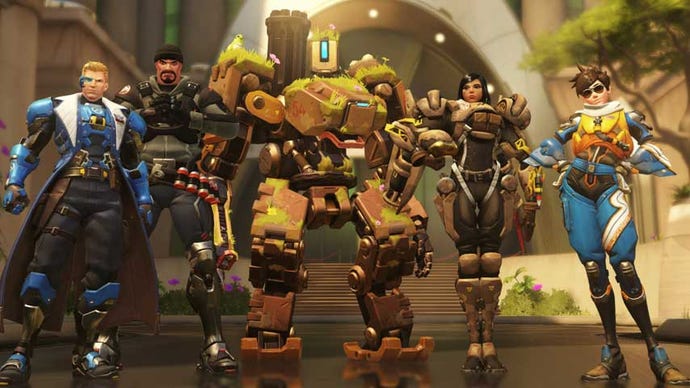






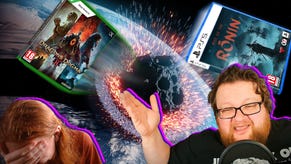
.jpg?width=291&height=164&fit=crop&quality=80&format=jpg&auto=webp)
